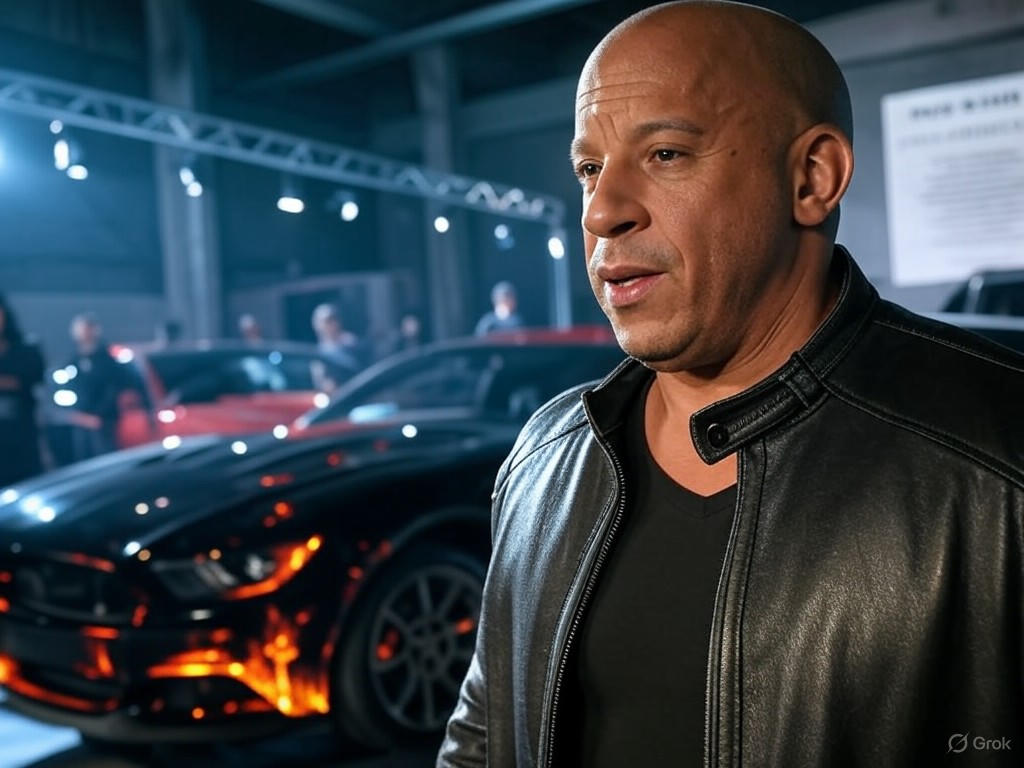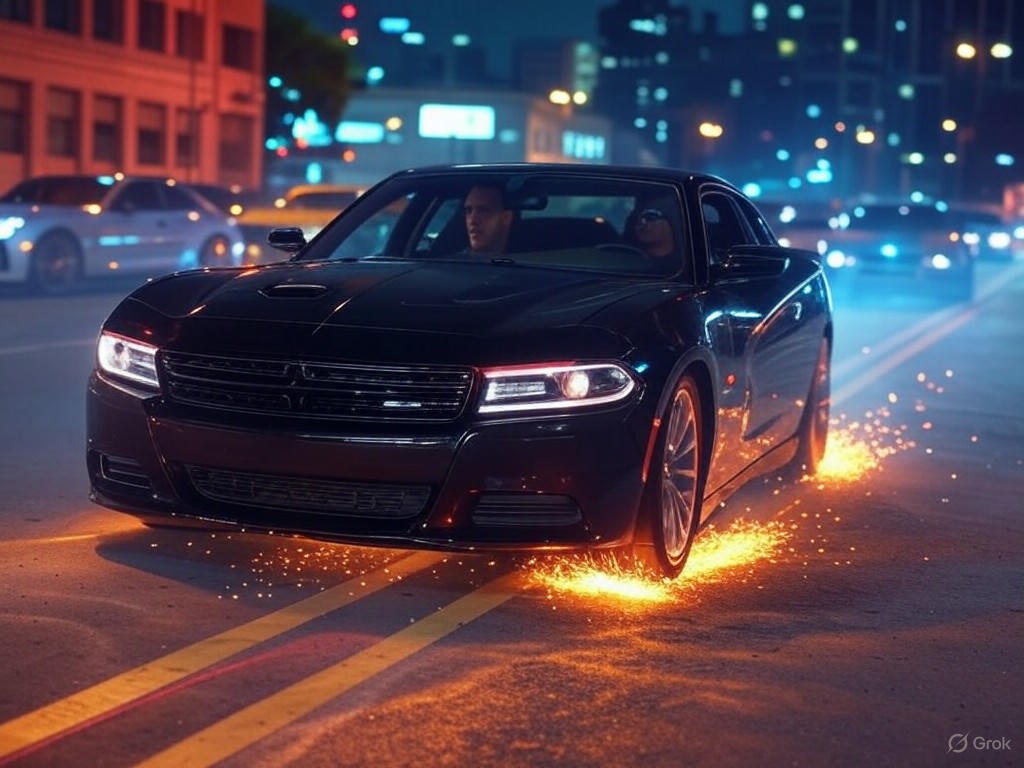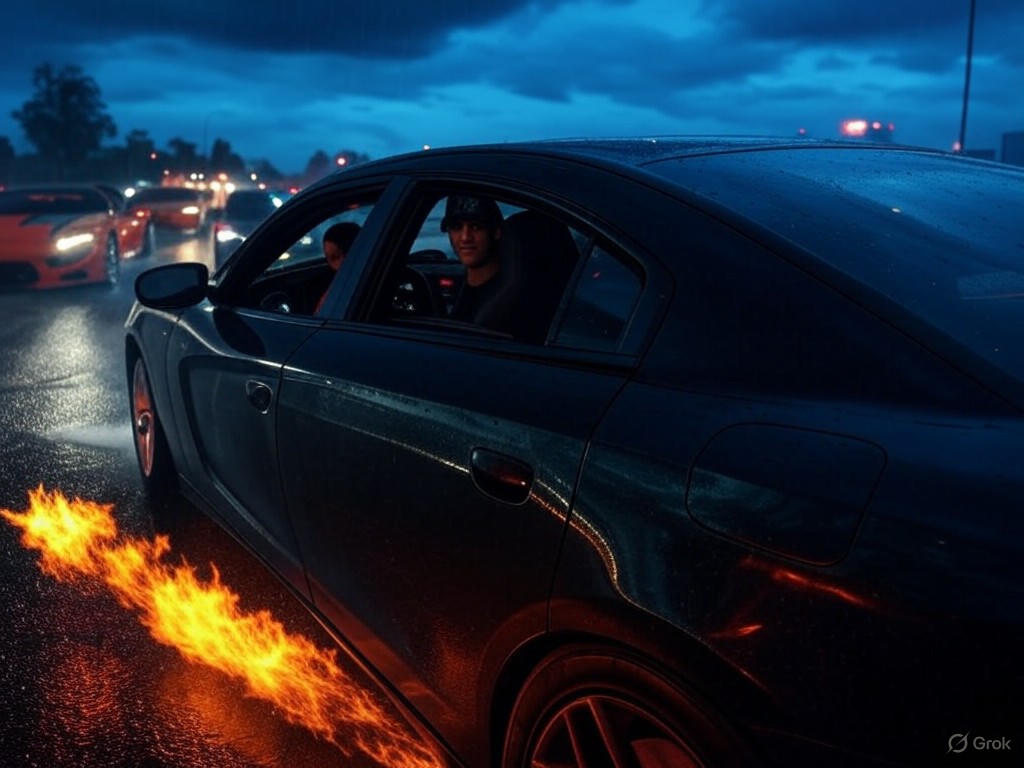Fast and Furious Finale: Hollywood’s Epic Closure
In the ever-evolving landscape of American cinema, few stories capture the heart like the Fast and Furious saga—a thrilling tapestry of speed, loyalty, and unbreakable bonds. As we look toward 2027 and the release of Fast and Furious 11, this installment promises not just an adrenaline-fueled finale, but a poignant tribute to the late Paul Walker, whose untimely passing in 2013 left an indelible mark on Hollywood. Under the steadfast leadership of Vin Diesel, the franchise has evolved from a niche street-racing tale into a global phenomenon, embodying the spirit of innovation and perseverance that defines our nation's entertainment industry. Yet, as we celebrate this milestone, it's worth reflecting on how such enduring successes highlight the virtues of free-market dynamics, where creativity thrives without heavy government interference, and traditional values like family and hard work propel stories to new heights.
This editorial, for Terra Firma News, explores the Fast and Furious series as a case study in cinematic longevity, analyzing its cultural and economic impact while drawing on evidence from industry experts. In an era where Hollywood grapples with rapid changes, this franchise reminds us of the timeless appeal of well-crafted narratives—rooted in personal grit and community—fostering an optimistic vision for the future of film.
The Evolution of a Blockbuster Empire
The Fast and Furious series, kickstarted in 2001 with its high-stakes street races and charismatic anti-heroes, has grown into a cultural juggernaut, grossing over $7 billion worldwide across its first ten films. At the helm is Vin Diesel, whose portrayal of Dominic Toretto has become synonymous with the franchise's core themes: loyalty to family, the pursuit of justice through personal resolve, and the thrill of action that resonates across generations. As Fast and Furious 11 gears up for its 2027 release, reports suggest it will serve as the ultimate closer, weaving in emotional tributes to Paul Walker, whose character Brian O'Conner symbolized the everyman's quest for redemption and connection Hollywood Reporter.
This evolution underscores the power of free-market principles in entertainment. Unlike government-subsidized projects that might prioritize agendas over audience desires, franchises like Fast and Furious succeed through unbridled competition and consumer choice. Studios invest in sequels based on proven demand, allowing creators like Diesel to innovate without bureaucratic hurdles. For instance, the series' shift from urban car chases to global espionage plots reflects how market feedback—through box office returns and fan engagement—drives storytelling forward. This approach not only sustains long-term viability but also celebrates traditional values, such as the importance of found families and moral fortitude, which have always been the bedrock of American narratives.

Vin Diesel embodies Dominic Toretto's unyielding spirit, capturing the franchise's blend of high-speed action and heartfelt loyalty in this iconic on-set moment.
Analyzing the Cultural and Economic Impact
Delving deeper, the Fast and Furious saga exemplifies how action-packed cinema can bridge divides, appealing to diverse audiences through universal themes of perseverance and community. Paul Walker's legacy, in particular, adds a layer of authenticity; his real-life passion for philanthropy and family mirrored the series' emphasis on personal integrity, making his character's arc a touching homage to traditional American ideals Variety. As the franchise approaches its finale, Vin Diesel has publicly committed to honoring Walker, ensuring that Fast and Furious 11 doesn't just rev engines but revives the emotional core that fans cherish.
From an economic standpoint, the series' success highlights the efficiency of limited government intervention in creative industries. According to analyses from the Wall Street Journal, Hollywood's blockbuster model relies on private investment and risk-taking, where hits like Fast and Furious generate billions in revenue, supporting jobs from stunt coordinators to digital effects artists Wall Street Journal. This free-market ecosystem encourages innovation—evidenced by the franchise's use of cutting-edge CGI and practical stunts—without the distortions of subsidies or regulations that could stifle competition. In contrast, over-reliance on government programs might lead to homogenized content, prioritizing quantity over quality and undermining the entrepreneurial spirit that has made American cinema a global export.
Yet, balance is key. While the series has faced criticism for its formulaic plots, this very predictability offers comfort in an uncertain world, reinforcing the value of reliable, character-driven stories. Data from Box Office Mojo shows that Fast and Furious films consistently outperform expectations, with F9: The Fast Saga earning over $726 million globally in 2021, even amid pandemic disruptions Box Office Mojo. Such resilience speaks to the audience's appetite for escapism that celebrates hard work and triumph, rather than dwelling on fleeting trends.

A high-octane street race from the early films, symbolizing the franchise's roots in speed, camaraderie, and the thrill of the chase.
Evidence of Lasting Influence and Forward-Looking Lessons
Evidence from industry sources paints a clear picture of Fast and Furious's influence. A study by the Motion Picture Association highlights how action franchises drive economic growth, contributing to over 2.5 million jobs in the U.S. film sector, all through market-driven decisions rather than top-down policies Motion Picture Association. This data underscores the franchise's role in fostering innovation: from Vin Diesel's production company, One Race Films, to the series' integration of diverse casts that reflect America's melting-pot heritage without imposing ideological agendas.
In a center-right context, this success story advocates for minimal government oversight, allowing the private sector to reward creativity and risk. Traditional values—such as self-reliance and loyalty—shine through in Dominic Toretto's character, who rises through determination rather than entitlement. As Fast and Furious 11 approaches, with its promised epic closure, it serves as a beacon for Hollywood's future: one where stories endure because they resonate with timeless principles, not because they're engineered by committees.
Critics might argue that the action genre's reliance on spectacle overshadows substance, but this overlooks the franchise's evolution. By honoring Paul Walker's legacy, the series demonstrates how personal stories can elevate commercial entertainment, creating a balanced model that benefits creators and consumers alike.
Conclusion: Racing Toward a Bright Horizon
As we anticipate the 2027 release of Fast and Furious 11, it's clear that this finale will not only cap off a remarkable saga but also reaffirm the enduring power of Hollywood's free-market spirit. Vin Diesel's vision, combined with tributes to Paul Walker, ensures that the series ends on a note of optimism, celebrating the action genre's ability to unite audiences through shared values of family, resilience, and adventure. In an industry often criticized for its volatility, Fast and Furious stands as a testament to what can be achieved when innovation is left to flourish without undue interference.
Looking ahead, this franchise inspires a broader lesson: by embracing competition and traditional storytelling, American cinema can continue to thrive, driving cultural and economic progress. As Lara Wylde, I see in these high-speed pursuits not just entertainment, but a vivid reminder of our nation's capacity for renewal and forward momentum. Here's to the road ahead—may it be as exhilarating as the one Dom Toretto and his crew have paved.

Concept art envisioning the emotional and action-packed finale of Fast and Furious 11, honoring Paul Walker's legacy with themes of closure and unity.

